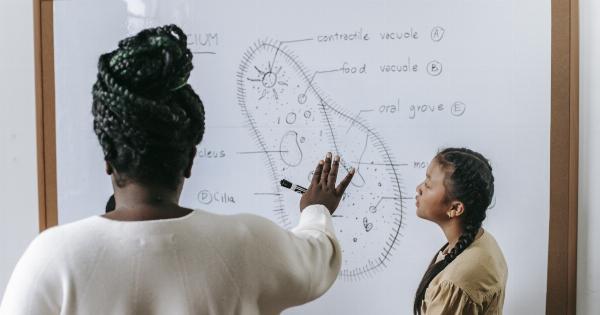In today’s fast-paced and often stressful world, many individuals are constantly seeking happiness and joy in their lives.
It is common for people to turn to therapy and coaching as tools to improve their overall well-being and find a sense of fulfillment. However, is therapy and coaching enough in the pursuit of joy? Or is there something more that individuals should explore?.
Understanding Therapy and Coaching
Therapy, whether it be psychotherapy, counseling, or other forms, focuses on addressing psychological issues, traumas, and mental health concerns.
It aims to identify and heal past wounds, resolve emotional conflicts, and develop strategies to cope with life’s challenges. Therapy is often rooted in the medical model, using diagnoses and treatment plans to guide the intervention process.
On the other hand, coaching primarily centers on personal and professional development. It involves working with a coach to create actionable goals, develop new skill sets, and improve overall performance.
Coaching is future-oriented and aims to maximize an individual’s potential, whether it be in their career, relationships, or personal growth.
The Limitations of Therapy and Coaching
While therapy and coaching have their merits and can be incredibly valuable, their limitations become evident when the sole focus is on addressing problems or enhancing performance.
While these approaches can help individuals overcome specific challenges or achieve specific goals, they may not lead to sustained joy and fulfillment.
Therapy often centers on addressing and resolving negative emotions, traumas, or mental health conditions. While this is necessary for healing, it may not necessarily lead to the development of positive emotions and a deep sense of joy.
Similarly, coaching may help individuals achieve success, but success alone does not guarantee lasting happiness.
Expanding the Perspective: Positive Psychology
Positive Psychology, a field of study and practice, delves into the science of happiness, well-being, and human flourishing.
Unlike traditional therapy and coaching, Positive Psychology focuses on building and nurturing positive emotions, character strengths, and meaningful connections.
By incorporating the principles of Positive Psychology into our lives, we can go beyond simply addressing problems or achieving goals. We can actively cultivate joy, happiness, and a sense of fulfillment.
Positive Psychology encourages individuals to focus on their strengths, find purpose and meaning, foster positive relationships, and engage in activities that bring about a state of flow.
Cultivating Joy through Strengths
One essential aspect of finding joy lies in identifying and leveraging our individual strengths. Each person possesses unique strengths, such as creativity, kindness, perseverance, or love for learning.
By recognizing and utilizing these strengths in our daily lives, we can increase our overall well-being and experience moments of joy.
This process involves self-reflection and mindfulness. Identifying our strengths can be done through exercises like the Values in Action (VIA) assessment, which provides individuals with a personalized profile of their top character strengths.
Once identified, we can intentionally incorporate these strengths into our daily activities, work, and relationships, amplifying our experiences of joy and fulfillment.
Finding Purpose and Meaning
A sense of purpose and meaning in life is a significant contributor to overall well-being and joy.
When individuals are clear about their values and goals, their actions align with a deeper sense of meaning, leading to greater satisfaction and contentment.
Discovering purpose and meaning involves self-reflection, exploring personal values, and pursuing activities and goals that resonate with our true selves. It may require breaking free from societal expectations or redefining success on our own terms.
By living authentically and in alignment with our values, we can invite more joy into our lives.
Cultivating Positive Relationships
Human beings are social creatures, and our connections with others play a vital role in our well-being and joy. Positive relationships provide emotional support, companionship, and opportunities for growth and shared experiences.
Cultivating positive relationships involves nurturing existing connections and seeking out new ones. It requires active listening, empathy, and the willingness to invest time and effort in building meaningful connections.
Joy often arises from deep and meaningful relationships, where individuals feel seen, heard, and accepted for who they truly are.
Engaging in Flow-Inducing Activities
Flow refers to a state of complete absorption and engagement in an activity. It is characterized by intense focus, a feeling of timelessness, and a sense of fulfillment.
Engaging in activities that induce flow can lead to increased joy and overall well-being.
Identifying flow-inducing activities involves exploring one’s interests, passions, and hobbies. It may involve trying out new activities or embracing long-forgotten passions.
By engaging in activities that bring about a state of flow, individuals can experience deep joy, as they lose track of time and immerse themselves fully in the present moment.
The Journey to Lasting Joy
In the pursuit of joy, therapy and coaching can lay the foundation for healing, growth, and personal development. However, to experience lasting joy and fulfillment, individuals can explore beyond conventional approaches.
Positive Psychology offers valuable insights and techniques that can help individuals cultivate joy through strengths, find purpose and meaning, foster positive relationships, and engage in flow-inducing activities.
By expanding our perspective and embracing practices that go beyond problem-solving and goal achievement, we can embark on a journey of sustained joy and well-being.































